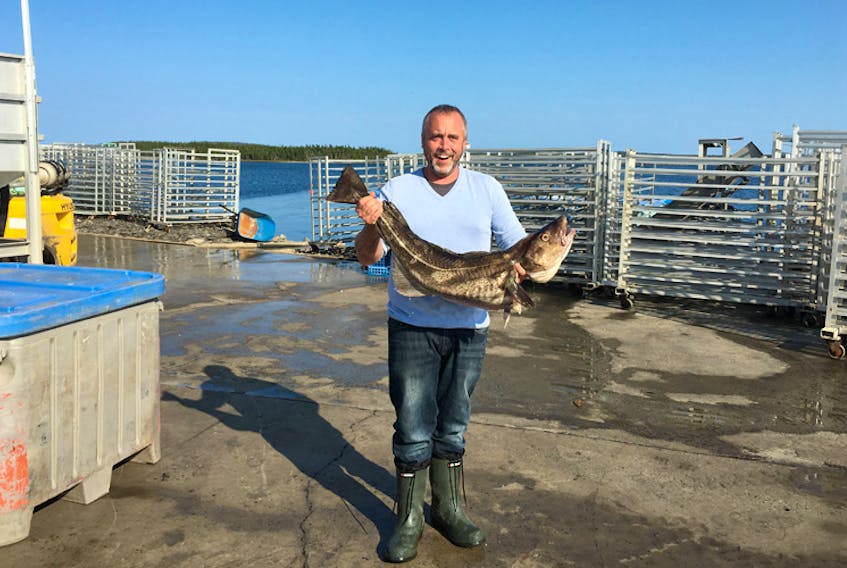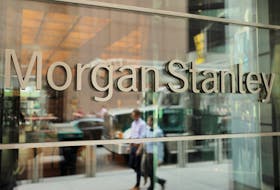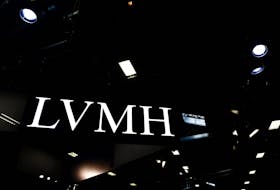OUTSIDE IN: This is the fourth in a five-part series.

For years, governments, institutions, industries and homeowners have followed the mantra of reduce, recycle, reuse.
But a growing trend pairs cutting waste with finding new uses for what we’d otherwise throw out, as government policy tries to steer us to greener ends.
Ben Wiper, CEO of 3 F Waste Recovery, is banking on that — and on the old saying that one person’s trash is another’s treasure.
Until a couple of years ago, the Ontario native was working in the Newfoundland and Labrador fish-processing sector. When that job ended, he took some time to reflect, brainstorm and plot his next step.
In 2017 he started 3F Waste Recovery, based in Main Brook on Newfoundland’s Northern Peninsula — population 236.
Right now, 3F is in its pre-commercialization startup phase, developing prototypes, refining business plans and working to attract investors. Wiper is working with Memorial University of Newfoundland’s Genesis Centre and is involved with the Navigate incubator at the Grenfell Campus in Corner Brook.
“The three Fs are fish, farm and forest — those are the sectors I’m focusing on,” Wiper said. “3F is a company that’s focused on taking raw material waste streams from the fish, farm and forestry sectors and turning them into high-value products at the highest level. Our goal is to have a 98 per cent utilization rate of all the raw materials that we take in and turn into other products.”
3F has three main project streams:
Municipal composting
Wiper has partnered with a local machinist to develop a hybrid composting system. The intent is to collect household composting materials, mix it with fish waste from local plants and produce fish compost. The town of Main Brook has applied to the Multi-Materials Stewardship Board for a 50-household pilot project for composting in the community. (Full disclosure: Wiper is a town councillor in Main Brook but took no part in the decision to apply for the pilot project.) If the process is successful, it could expand to cover all of Main Brook and, later, other rural communities and institutions.
Livestock carcasses (particularly moose and sheep)
The plan is to collect carcasses and render them to produce tallow, glycerin and gelatin. Tallow has applications as cooking oil and as a raw material in soap. Glycerin is an industrial sweetener, and Wiper is in talks with a craft brewery and a craft distillery to do a moose-infused beer and a moose-infused rum. He’s testing a process to dehydrate gelatin to produce a moose gravy powder. He also hopes to source sheep wool locally and extract the lanolin.
“Lanolin is one of two CFIA approved food equipment lubricants and, if you refine it, it’s also a cosmetic ingredient.”
Marine collagen
There’s demand for marine collagen in the neutraceutical and cosmetic markets. Wiper is talking to a collagen-infused health beverage company which is looking for more easily dissolvable marine collagen. “We’re working on a project with the Marine Institute, a groundfish processor on the Avalon (Peninsula) … to try to develop a patent for a high solubility, cold-water fish collagen using all Newfoundland cod skins, fins and bones.” Wiper is also exploring opportunities in the global cosmetics market for marine collagen produced here.
Pressure is mounting on primary processors to reduce waste. Tipping fees at regional landfills are increasing. In western Newfoundland, tipping fees recently doubled “and the announced path is they’ll actually quadruple from 2017 levels by 2022,” Wiper said.
“The province wants more farmers, they want more agriculture, they want more primary processing, they want more secondary processing — all these things produce waste. …
“I’m a finance guy by background and worked as a general manager at a fish plant before this, so I’m very familiar with the cost of waste. And when you’re facing that your primary method of disposal is quadrupling in costs, all these businesses are going to be in a really tough spot as these fees roll out, unless there are companies like 3F that are doing things with the waste products.”
Mark Vaughan-Jackson is The Telegram’s business editor. He can be reached at [email protected].
Where are Atlantic Canada's entrepreneurial success stories?
Click the photo or headline to learn about this go-getter.










